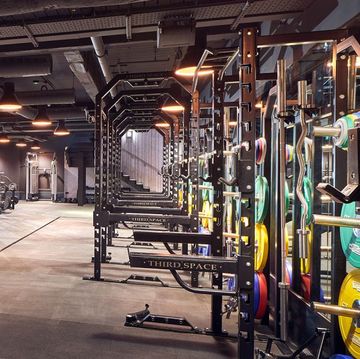There aren't enough hours in the night if you're sleeping badly. And a recent study in Neuron reports that aging brains mean people's quality of sleep starts to plummet in their 30s. "The parts of the brain deteriorating earliest are the same regions that give us deep sleep," lead author Bryce Mander said in a press release from the University of California at Berkeley. Another cheerful way to look at it: Our own brains basically cannibalize our sleep patterns as we age.
As we get older, our brains have less control over the chemicals that help us fall asleep and then wake up, making people feel sleepy during the day and wide-awake at night. Plus, the receptors that signal it's time to go to bed stop functioning as well, and make it more likely that someone will toss and turn when they do. According to Discover, sleep deprivation builds up, putting people at risk for all kinds of diseases.
Poor-quality sleep also means people get less non-REM sleep (i.e. dreamless sleep), which in turn messes up how the brain turns important short-term information into long-term memories. Essentially, the reset button stops getting pushed. That process begins well before old age, especially for men. As Discover reports, when men hit their 30s, the percentage of deep non-REM sleep can fall by 50 percent; it can drop by 25 percent for women.
The research indicates that good-quality sleep is deeper, not necessarily longer (though at least seven hours is still recommended for adults). Deep sleep isn't achieved with medication, which don't get the brain into non-REM sleep, the authors warn. There are plenty of tricks for falling asleep faster—don't look at screens, drink water instead of eating, read a book, cool down your feet—and behavioral therapy or sleep therapy can target poor sleep habits. But chances are the best sleep of your life is already behind you.













